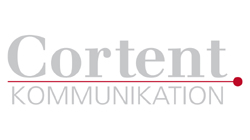The German Mittelstand
German Mittelstand set to benefit from free trade agreement.

Debate has been ongoing for a year, again, on whether or not to dismantle the customs duties and barriers that stand between the EU and the USA. Free trade would open up a area with a potential of over 800 million consumers representing approximately 50 percent of the global economy. But everything has its downside, and the discussion about this free trade area is fraught with enormous public controversy.
Gurus of political economy point to the advantages of having a trading landscape free of duties and barriers, and how these would contribute an additional 0.5 percent to EU growth. The sceptics, on the other hand, feel that 0.5% is optimistic, and instead express doubts on whether customer protection could ever be unified. Diverse regulatory mechanisms are also problem; take for example OGM plants or the rules for vetting pharmaceuticals
Taking the economic advantages alone, the debate boils down to the growth potential and the list of who is likely to benefit most. In addition to large-scale groups with an international standing, Frank Sportolari, Procurator General with United Parcel Service Deutschland and Vice-president of the Internationaler Kreis des Wirtschaftsrates der CDU e.V. Federal Commission identified the German Mittelstand as possible beneficiaries of a free trade structure. It is a fact that existing barriers weigh disproportionately higher on small and mid-size enterprises than on the big players because of the latter’s scarcity of resources to overcome the obstacles.
The strength of the German Mittelstand could lead to the belief that such an affirmation is a tactic, however close to reality it may be. Tagesschhau.de states that 27% of exports to the USA is composed of automobiles or spare parts while 17 percent is made up of chemical products.
More important still are indirect exports. Not always possessing their own direct sales channels, SMEs tend to sell their produce, whether finished, semi-worked or as raw materials in Germany to large concerns who work on the international stage. These global players then export the merchandise through their own sales channels. In its 2011 report on globalisation the Prognos Institute discovered that Germany’s exports of goods and services for 2007 amounted to 940 thousand million Euros. An additional 824 thousand million Euros of goods and services – 88% of direct exports – were sold through third parties.
Indirect exports are hard to quantify for each single SME. A glance at the flow of goods and services on the domestic market, however, shows that the benefits of helping to lighten the trade balance with extra-European countries ought to be reaped by the SMEs, the backbone of the German economy.















